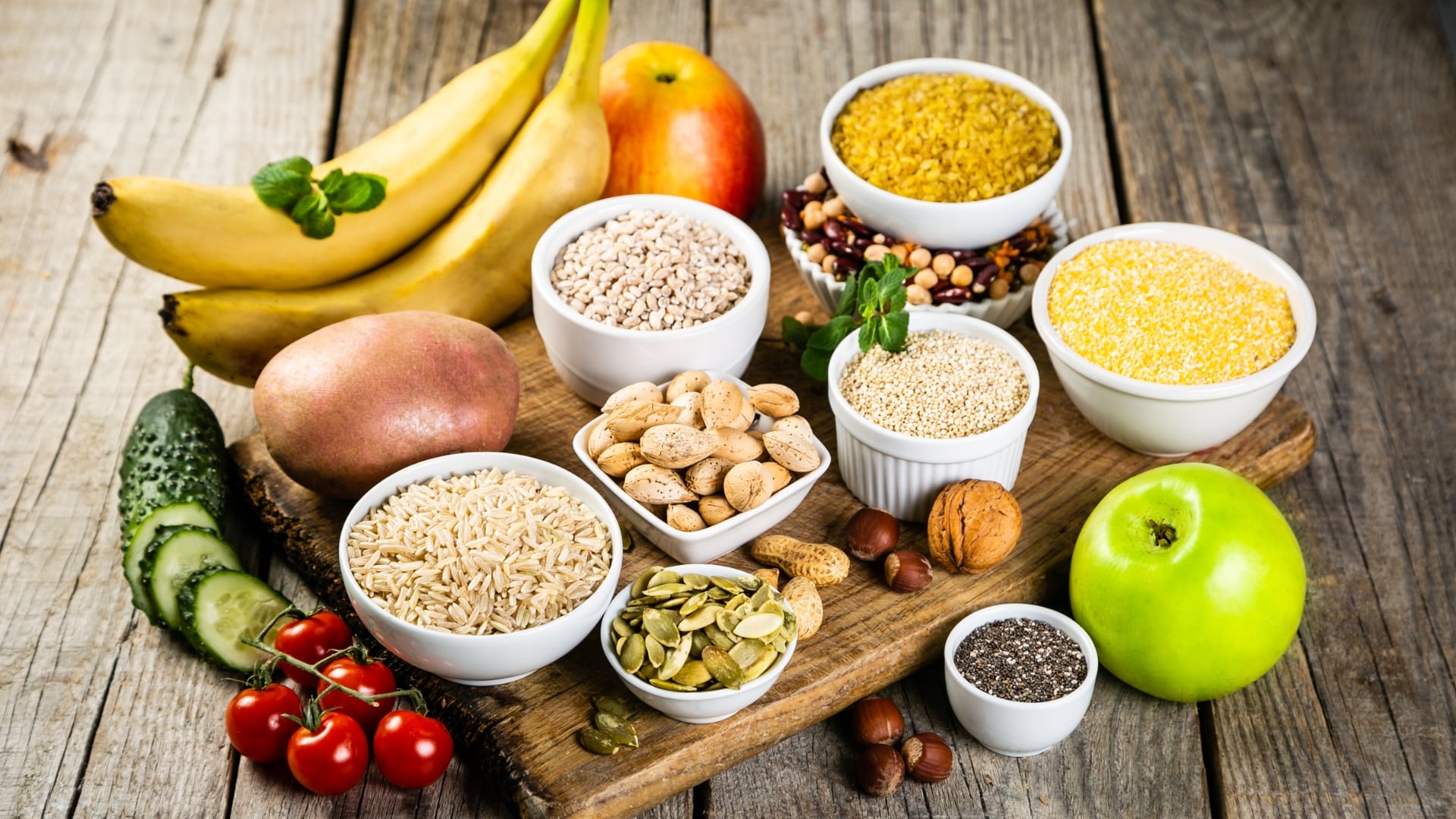Ginger roots are good for aiding digestion, reducing nausea, and offering anti-inflammatory and pain-relieving properties. It’s also beneficial for heart health by potentially improving cholesterol and blood pressure levels, and its immune-boosting qualities can help combat colds and infections.

Additionally, ginger possesses antioxidant properties, might aid in cancer prevention, and can help regulate blood sugar levels, making it a versatile and beneficial addition to a healthy diet. However, it’s important to use ginger as a complement to, not a replacement for, medical treatments and to consult a healthcare professional before starting any new supplement regimen.

Now, Let’s Get to the Root of Ginger Roots and Benefits
Ginger, a flowering plant whose rhizome, ginger root, is widely used as a spice and folk medicine, has a rich history in various traditional and alternative health practices. Its unique flavor and aroma, coupled with numerous health benefits, make it a staple in culinary and medicinal applications worldwide. Let’s delve into the myriad ways ginger root can be beneficial to our health.
But first, you can get some fresh ginger roots deliver to your door, from this link. They are some of the best ginger roots you can order online.
1. Ginger Roots Powerful Effect on Digestive Health and Nausea Relief
Ginger root is perhaps best known for its powerful effects on digestive health. It aids in soothing the digestive tract, promoting the elimination of intestinal gas, and preventing symptoms of gastrointestinal distress. This is particularly useful for those suffering from nausea, including morning sickness during pregnancy and motion sickness. Studies have consistently shown that ginger can be as effective as some prescription medications in treating nausea, without the accompanying side effects.
2. Ginger Roots Have Anti-Inflammatory and Pain Relief Properties
The anti-inflammatory effects of ginger are attributed to compounds called gingerols. These compounds make ginger an effective remedy for inflammatory conditions like osteoarthritis or rheumatoid arthritis. Ginger’s ability to reduce inflammation can also extend to pain relief. It has been shown to reduce menstrual pain and help manage migraines and headaches.
3. Ginger Roots Can Support Cardiovascular Health
Incorporating ginger into your diet might also contribute to improved cardiovascular health. Ginger can influence cholesterol levels and blood pressure, two significant factors in heart health. Additionally, its blood-thinning properties may reduce the risk of blood clots, further protecting the heart.
4. Ginger Roots Can Aid Immune System Boost
Ginger’s immune-boosting qualities stem from its antioxidant and antimicrobial properties. Regular consumption of ginger can help in treating colds and flu and ward off bacterial and fungal infections. This makes it a great natural remedy to boost your immune system, especially in seasons when colds and flu are prevalent.
5. Ginger Roots Have Potential Anti-Cancer Properties
There’s growing interest in ginger’s potential role in cancer prevention and treatment. Its anti-inflammatory and antioxidant properties suggest that it might help in fighting certain types of cancer. While research is ongoing, early studies are promising in indicating ginger’s role in this critical area of health.
6. Ginger Roots Can Support Blood Sugar Regulation
Ginger might play a role in managing blood sugar levels, which is particularly beneficial for individuals with diabetes or those at risk. Balancing blood sugar is a crucial aspect of maintaining overall health, and ginger’s potential in this area adds to its list of benefits.
7. Ginger Roots are Antioxidant Powerhouse
The antioxidant effects of ginger cannot be overstated. By combating oxidative stress and free radicals in the body, ginger contributes to overall health and wellness. This is particularly important in preventing chronic diseases and aging-related decline.
8. Ginger Roots Usage and Precautions
Incorporating ginger into your diet can be as simple as adding fresh or powdered ginger to your meals, drinking ginger tea, or taking ginger supplements. However, it’s essential to remember that ginger should complement and not replace prescribed medical treatments. Always consult with a healthcare professional before starting any new supplement, especially if you have existing health conditions or are on medication.

Summarizing: What Are Ginger Roots Good For?
Ginger root, renowned for its medicinal and culinary uses, offers a range of health benefits. It’s highly effective in aiding digestion, alleviating nausea, and providing relief from gastrointestinal discomfort. Its anti-inflammatory properties make it beneficial for treating conditions like arthritis, while its ability to alleviate pain extends to menstrual and migraine relief.
Ginger also supports cardiovascular health by potentially improving cholesterol and blood pressure levels and possesses immune-boosting properties that help combat colds and infections.
Additionally, it may play a role in cancer prevention and blood sugar regulation, thanks to its antioxidant properties. However, while ginger is a versatile and beneficial natural remedy, it should be used as a complement to medical advice and treatments.
The many health benefits of ginger root, from digestive health to immune boosting, make it more than just a flavorful spice. Its therapeutic properties have been valued for centuries, and ongoing research continues to uncover more about this powerful root. Whether used in cooking, as a tea, or in supplement form, ginger can be a beneficial addition to a healthy lifestyle.
-
Want to learn more about ginger roots? Check our ginger roots category on our blog.
Next on this article, are some frequently asked question about ginger roots. Keep reading.

20 Ginger Roots Frequently Asked Questions (FAQs)
To further assist you in understanding the wide-ranging benefits and uses of ginger roots, we’ve compiled a list of 20 frequently asked questions (FAQs). These FAQs aim to provide insightful information on various aspects of ginger, from its health benefits in aiding digestion and relieving nausea to its role in managing pain and boosting immune health.
Whether you’re curious about incorporating ginger into your diet, understanding its medicinal properties, or learning about any precautions, these questions and answers will serve as a valuable guide. Discover the powerful effects of this versatile root and how it can contribute to your overall well-being.
-
1. What are the primary health benefits of ginger roots?
Ginger roots are known for aiding digestion, relieving nausea, reducing inflammation, offering pain relief, supporting cardiovascular health, boosting the immune system, and possessing antioxidant properties.
-
2. How does ginger help in improving digestion?
Ginger stimulates saliva, bile, and gastric enzymes, which aids in digestion and helps in relieving gastrointestinal irritation, reducing gas, and preventing bloating.
-
3. Can ginger root be used to treat nausea and motion sickness?
Yes, ginger is effective in treating various forms of nausea, including morning sickness in pregnancy, chemotherapy-induced nausea, and motion sickness.
-
4. Is ginger effective in managing pain, such as menstrual cramps or headaches?
Yes, ginger can reduce pain levels, especially in cases like menstrual pain and some types of headaches, including migraines.
-
5. How does ginger contribute to cardiovascular health?
Ginger may help in lowering cholesterol levels, regulating blood pressure, and preventing blood clotting, all of which contribute to better cardiovascular health.
-
6. Can ginger root help in boosting the immune system?
Yes, ginger has immune-boosting properties due to its antioxidant and antimicrobial effects, helping to treat colds and flu and ward off infections.
-
7. What are the anti-inflammatory properties of ginger, and how do they help?
Ginger contains compounds like gingerols and shogaols that have anti-inflammatory properties, which can help in treating conditions like osteoarthritis and reducing overall inflammation in the body.
-
8. Is ginger beneficial for people with arthritis?
Yes, due to its anti-inflammatory properties, ginger can help alleviate symptoms of arthritis, including pain and stiffness.
-
9. How can ginger be used in cancer prevention and treatment?
Ginger’s anti-inflammatory and antioxidant properties may play a role in cancer prevention and treatment, although more research is needed in this area.
-
10. Does ginger have any role in regulating blood sugar levels?
Some studies suggest that ginger can help in managing blood sugar levels, making it beneficial for people with diabetes or those at risk.
-
11. What are the antioxidant benefits of ginger?
Ginger is rich in antioxidants, which combat oxidative stress and free radicals in the body, contributing to overall health and preventing chronic diseases.
-
12. How can ginger be incorporated into a daily diet?
Ginger can be added to foods and drinks, such as teas, smoothies, soups, and stir-fries, or taken as a supplement.
-
13. Are there any risks or side effects associated with consuming ginger?
Ginger is generally safe, but high doses may cause mild side effects like heartburn, diarrhea, and stomach discomfort. It’s also important to consult a doctor before taking ginger supplements, especially for those on medication or with medical conditions.
-
14. Can pregnant women safely consume ginger?
Yes, in small amounts, ginger is generally considered safe for pregnant women, particularly for nausea relief, but it’s important to consult with a healthcare provider first.
-
15. How does ginger help in weight loss?
Ginger may help in weight loss by enhancing thermogenesis, reducing feelings of hunger, and improving metabolic rates.
-
16. Can ginger relieve symptoms of cold and flu?
Yes, ginger’s antimicrobial and immune-boosting properties make it effective in relieving symptoms of cold and flu.
-
17. Is it better to use fresh or dried ginger?
Both fresh and dried ginger have health benefits, but fresh ginger may have higher levels of gingerol, the compound responsible for many of ginger’s medicinal properties.
-
18. Can ginger interact with medications?
Yes, ginger can interact with certain medications, such as blood thinners and diabetes drugs, so it’s important to consult with a healthcare provider before using it as a supplement.
-
19. How much ginger should one consume daily for health benefits?
A common recommendation is up to 3–4 grams of ginger extract per day, but it’s best to consult with a healthcare provider for individual advice.
-
20. Can ginger help with respiratory problems?
Ginger may help relieve respiratory problems due to its anti-inflammatory properties, which can reduce inflammation in the airways.
These FAQs about ginger roots encapsulate the diverse and significant benefits of this remarkable natural ingredient. From enhancing digestive health to boosting immune function, and even potentially aiding in chronic illness management, ginger’s range of applications is vast. We hope these questions and answers have shed light on how you can effectively utilize ginger in your daily life, the precautions to consider, and the scientific backing of its health benefits.
Remember, while ginger is a powerful aid, it’s always advisable to consult healthcare professionals for personalized advice, especially in the context of specific health conditions or treatments.





